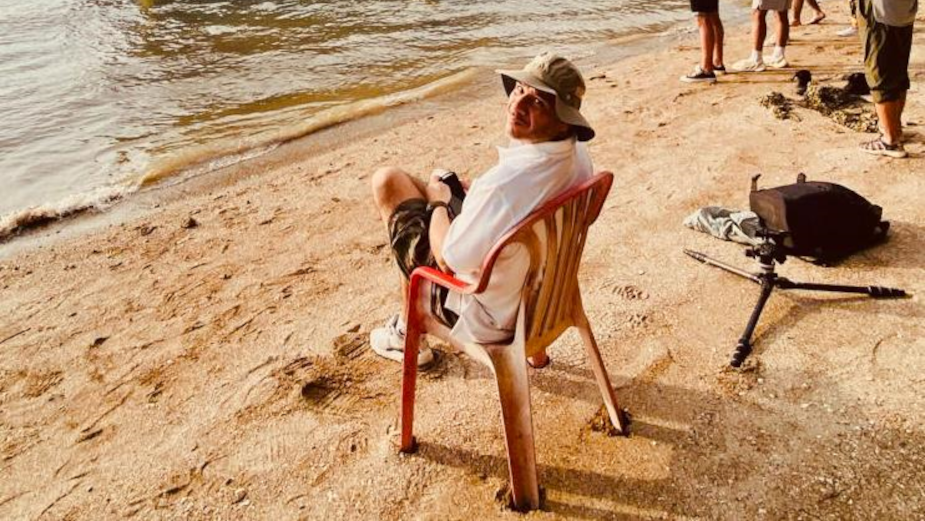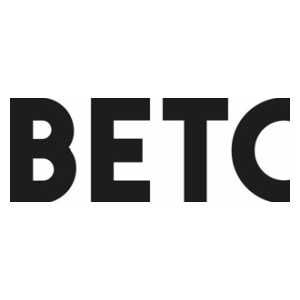
Production Line: Being on the Lookout for Innovations with Karim Naceur

Karim Naceur is global head of TV production at creative agency BETC Paris. He started his advertising career as a post-producer, before moving to the production side. He's had work experiences at Fred & Farid and Havas Prod. Karim has also been a jury member in various ad competitions such as the AICP and the D&AD Awards.
LBB> What lasting impact has the experience of the pandemic had on how you and your agency think about and approach production?
Karim> The pandemic definitely proved to us how different ways of working would work. We had to experience remote shoots, we've put in place safety measures, and had to work remotely while staying productive. And obviously, we all learn to adapt to unprecedented times. What is happening in Ukraine right now, which used to be one of our largest providers of locations, proves it once again...
LBB> Aside from covid-19, what have been the most disruptive forces to hit agency production in the past few years?
Karim> Covid-19 gave us the time to think about some issues such as work/life balance, wellbeing at work, the workplace and eco-development of our production decisions, from recycling our sets, to thinking about the carbon impact of our travels...
LBB> A good producer should be able to produce for any medium, from film to events to digital. Do you agree or disagree with this statement? Why/why not?
Karim> That's the key function of a producer, to know how to adapt his project direction in regard to his own expertise's, that he always needs to evolve. A good producer should be on the lookout for innovations, listen to how the industry is evolving, searching for new talent, and new production partners. Right now, we are actively looking for companies that can handle virtual productions in the Metaverse for example.
LBB> And leading on from that, when it comes to building up your team at the agency, what’s your view on the balance of specialists vs generalists?
Karim> All my producers each bring their own universe and their expertise. The sum of all these abilities gives me a real plue-value in the execution of our productions. Some of my producers come from the TV industry, others from motion pictures, print or events. Others had never worked in production before but were passionate about visual content. But, in the end, they all share a common passion for image and creation. Bringing all together these differences creates a strong collective.
LBB> What’s your own pathway to production? When you started out, what sort of work were you producing and what lessons have stayed with you in that time?
Karim> I started working in production through stage management and the role of the assistant responsible for securing the parking spaces for the trailers. I learned a lot, especially the rhythm and rigour expected on a set. And I developed a true passion for cinema.
After that, I joined BETC in the post-production department and was responsible for finalising films for the Peugeot brand. While a producer was on leave, I got my chance and immediately liked the production part and the role of an agency producer. From there, I pursued this interest and got into the TV Production team at BETC. After that, I was hired by Fred & Farid. Their approach of doing the production internationally helped me to develop a new side of the role and got me to work in close contact with production companies in the US. I learned a lot about the different ways that a production team can be organised and the precise value of every single member of a team. It's the alignment of everybody in the production chain that guarantees a good project from pre-production, actual shooting, and post-production. Later, I joined Havas Prod to manage their production team that was going through a restructuring and bring them my advertising background. After three years, I moved back to Fred & Farid, this time in the Shanghai office to set up from scratch the production team. I also had a global role as I was also in charge of production from their locations in Paris, New York and Shanghai. After four years of working on incredible projects, I came back home at BETC, where I took over the TV Production department.
LBB> If you compare your role to the role of the heads of TV/heads of production when you first joined the industry, what do you think are the most striking or interesting changes (and what surprising things have stayed the same?)
Karim> I would say that when working with heads of production, you need to have complicity and close collaboration for your vision to come to life and deliver a great project. This wasn't necessarily the case when I started, as producers used to stay in their lane more. Today, cohesion and solidarity are key. I can't even imagine a project without a strong connection between the head of production and one of my producers. Both people need to be totally aligned.
Here's how it works. In ad agencies, there are three main roles in the production:
- The TV producer, he is the one that selects the production company and the director. His job is to defend at the same time the quality of the work and to defend his client's interests. It's a complex role but really passionate.
- The producer, he is the main person on set. He manages the director, who is hired to bring to life the creative idea.
- The production director, he works as a duo with the producer. He is mostly in charge of the budget and making sure that the project stays on track.
LBB> When working with a new partner or collaborator, how do you go about establishing trust?
Karim> We have set up weekly meetings where every member of the team shares their experience and the way that their productions are set, depending on the project.
We also have a super active group chat where anyone can ask for suggestions or support when needed.
All these exchanges help to create connections between us. This job is definitely not an individual position any more. It's a team sport.
LBB> How important is it to you there is diversity across all partners on a production? Do you have any measures to promote diversity when it comes to production?
Karim> We love diversity over here because it brings the unexpected. Everybody has the chance to bring their own different personality to the projects and the team. This makes us stronger.
LBB> Has the pandemic accelerated this conversation at all, in your opinion? (ie, the number of people on set, less people flying around the world, etc.)?
Karim> I have to say that remote shooting was particularly helpful during lockdowns to keep productions alive. However, I won't recommend hanging onto this model. In our line of work, there are so many factors that have to be addressed on the day of shooting and on set. You can't just be spectators of what's going on. You always have to make decisions. The energy behind a computer is not the same as when you are on location.
LBB> When it comes to educating producers how does your agency like to approach this? (I know we’re always hearing about how much easier it is to educate or train oneself on tech etc, but what areas do you think producers can benefit from more directed or structured training?)
Karim> The one thing that is mandatory is a strong passion for visual arts and image. The most important things are revealed during our discussions about creation and visuals. That's a given. We can teach them the process, how to conduct negotiations, and manage team members.
LBB> Should production have a seat in the c-suite - and why?
Karim> Yes, of course. It feels essential that production leaders should sit in the C-Suite. Nothing exists if production is not strong in an agency. We are craftsmen and our know-how is to bring a plus-value to our agency. Eventually, the production department creates the final product.
LBB> How have you approached integrating data with production workflows and processes? And, generally, how has data and the fact that we have constant live feedback on content performance changed production?
Karim> Absolutely. Data has been a great help in managing workload, in evaluating the rentability of projects and in forecasting when looking through previous years data.
LBB> Clients’ thirst for content seems to be unquenchable - and they need content that’s fast and responsive! What’s the key to creating LOTS of stuff at SPEED - without sacrificing production values? Is it even possible?
Karim> We have set up a content factory. It is possible to bring speed to the process. The only mandatory thing is to remember to always keep the quality and competitive at a high level.
I want to insist on the fact that time is necessary to have quality. Brands that will win are those that will protect the quality of the production.
LBB> To what extent is production strategic - traditionally it’s the part that comes at the ‘end’ of the agency process, but it seems in many cases production is a valuable voice to have right up top - what are your thoughts/experiences of this?
Karim> The best campaigns are often conceived in concert with the production from the start to make sure to have the best configuration possible all while staying on budget and on time.
LBB> What’s the most exciting thing about working in production right now?
Karim> Technology is great, such as 3D, virtual studios or metaverse innovations. I have an interest in all of that. But what keeps staying the most important thing for me is to discover new directors. I closely follow the new rising generation of production companies. They bring some inventivity and have shed some of the codes from traditional production companies. It will be interesting seeing how the industry will evolve.
LBB> And what advice would you give to an aspiring agency producer?
Karim> I would tell them to seize all occasions and opportunities. Chance is a real talent. And talent can be acquired through meeting the right people and going through the right experiences. A lot of producers started their career in hybrid and versatile jobs.
Also, knowing how to stay humble and to keep going no matter what is an essential skill in this business.
Personally, I learned a lot and keep learning by watching the making-of's of my favourite movies, music videos or adverts.













